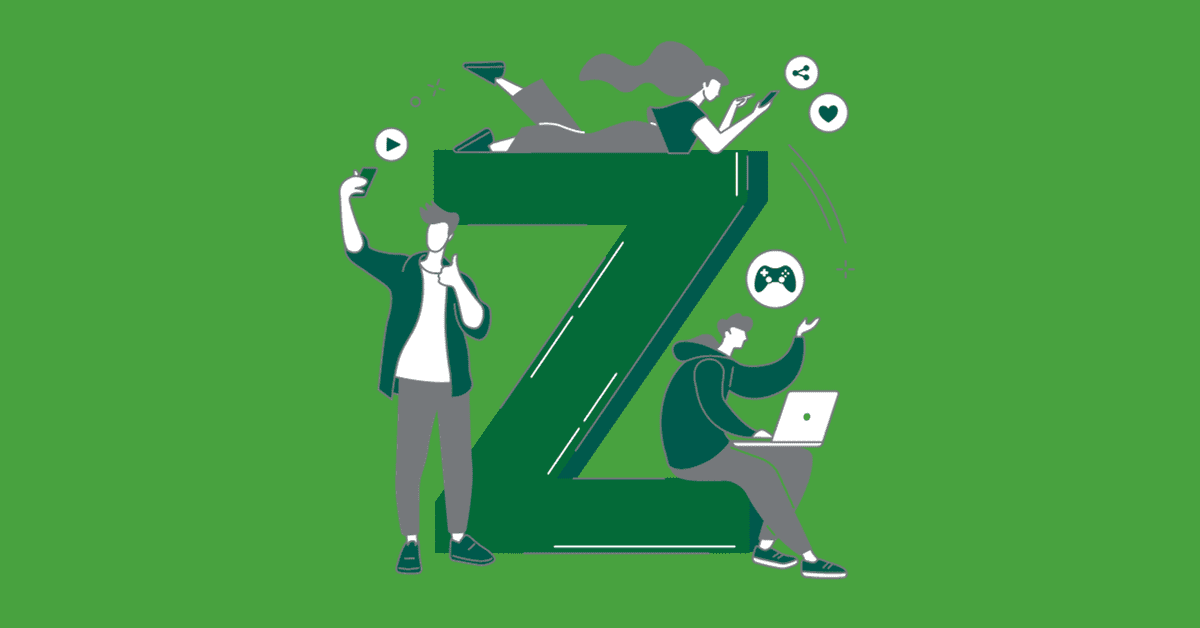
Generation Z, described as individuals born from 1997 to 2012, will make up almost a third of the workforce by 2025. As you begin to recruit these individuals for your company, it is important to understand their differences from previous generations as well as what they are looking for and need from employers.
Generational Differences
Gen Z cares about authenticity, flexibility, relatability and connectivity. They are digital natives who are looking for organizations that can make an impact.
This is also the most diverse generation to enter the workforce. Working for a company that is committed to diversity, equity and inclusion is important to Gen Z.
They also value job stability and financial security. According to a survey by Deloitte, 46% of Gen Z are living paycheck to paycheck and 35% list cost of living as a top concern.
“When they’re choosing an employer, they may be strongly influenced by a company that has longevity and a demonstrated financial track record,” says Melanie Anderson, talent acquisition representative with Ruppert Landscape, based in Laytonsville, Maryland.
Gen Z is also looking for growth and training opportunities.
“They want to know about growth and future opportunities,” says Chris Psencik, vice president of McFarlin Stanford. “They want to know more about your benefits and what you provide. They are a generation that went to school pre-, during and post-COVID, so working life is very different from the Millennials and the Baby Boomers. Don’t think you are going to change them, but certainly be open to discussing and having conversations that you may not be 100% prepared for.”
Because Gen Z started entering the workforce in the middle of the pandemic, many are only accustomed to working remotely and connecting virtually. Anderson says this type of virtual work is probably second nature to them.
“They likely just got better at using these tools during that period,” Anderson says. “It also likely gave them the experience of working outside of the traditional office setting in many cases, and many felt that they had a better work/life balance, which they still want to retain.”
Psencik says there is a great opportunity for Gen Z to help elevate how businesses work with their skills in technology.
Workforce Training
With this influx of the next generation in the workforce, don’t forget they need to be coached and guided on the basics of workplace etiquette.
“When we’ve had the opportunity to interact with college professors around how we can support students who are interning with us, we often hear that they’d like their students to come away from our program with more exposure to soft skills like active listening, email and phone etiquette, time management and teamwork,” Anderson says.
Psencik says they are interviewing prospective candidates who have never interviewed for a professional career before. He says they have shifted their recruiting efforts from just finding qualified candidates to coaching and training potential candidates on what an interview process should look like and things to be thinking about, questions to be asking and things they should be doing to prepare themselves for a potential career opportunity.
He adds that you need to outline what deliverables are required and clearly define key performance indicators so Gen Z employees can be successful.
Similar to Millennials, Gen Z wants to be trained. Psencik says they don’t want hand-holding on how to complete a task but rather guidance on how to advance in their career.
“Be prepared to train, coach and mentor your new Gen Z team members,” Psencik says. “Understand that sometimes coaching and mentorship will go beyond just landscape and think about how you are helping them make good life decisions with regards to living and budgeting, etc.”
Anderson adds that Gen Z is accustomed to quick and constant access to information, sometimes leading to shorter attention spans, so they may need training and communication methods that enable that.
“At McFarlin Stanford, we take a great deal of pride in what and how we train individuals for the green industry and that used to take six months,” Psencik says. “Then we condensed to three months. Now we are working on getting that down to six weeks. Our quality of training has not changed, but the manner in which we approach and go about training certainly has. We are looking for results faster and they want to have the tools quicker so they can be successful and hit the ground running.”

